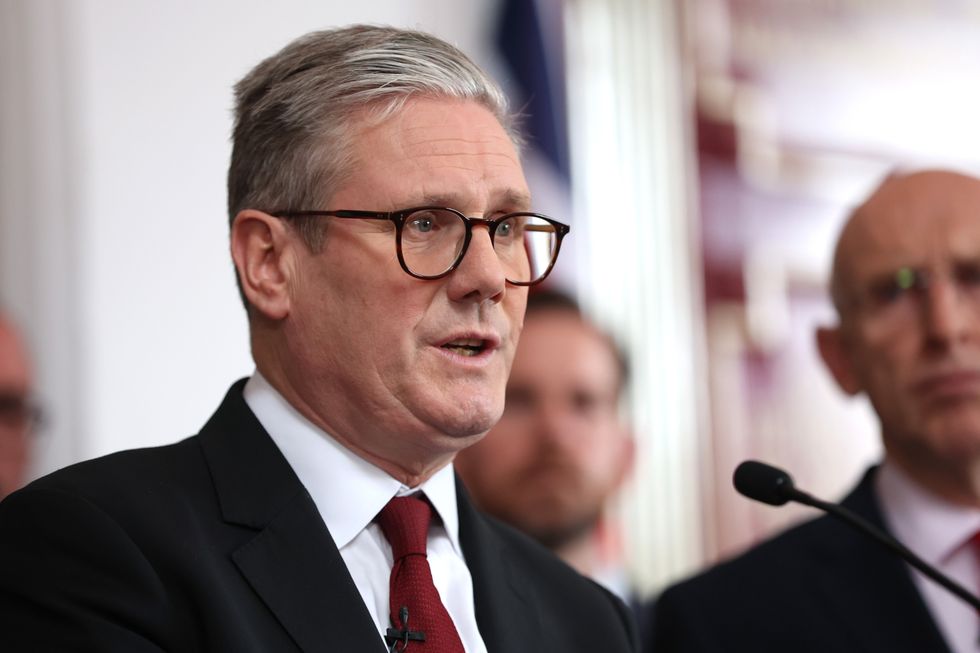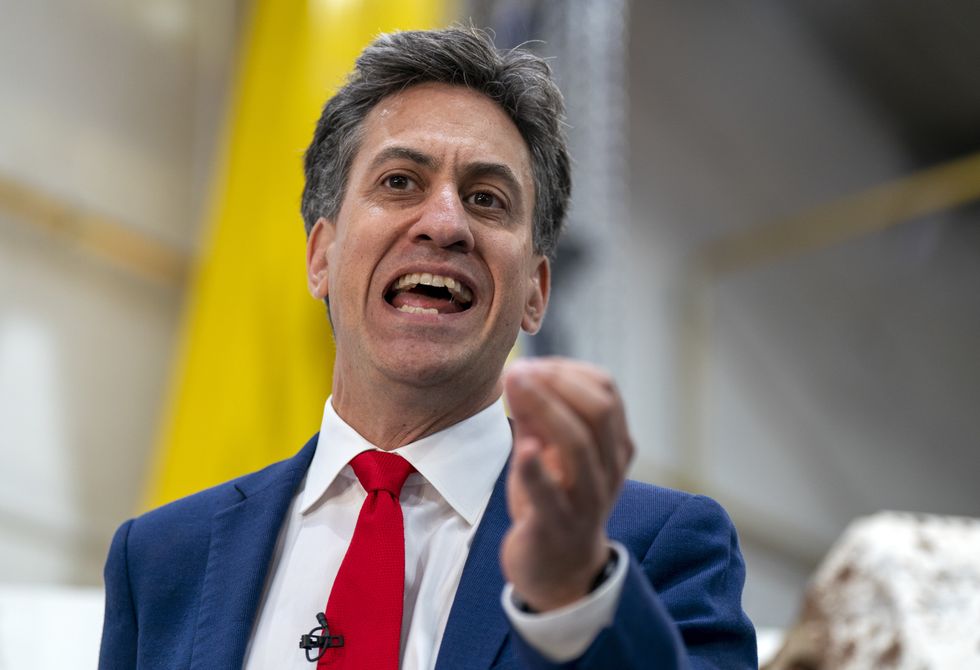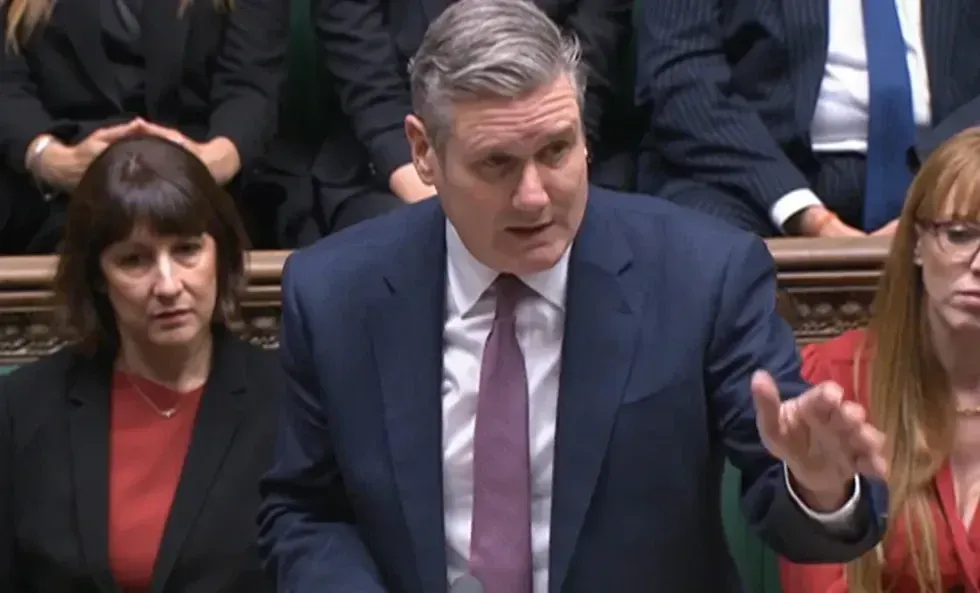'Labour is untrustworthy - the party lacks an overarching framework of ideas,' says James Woudhuysen

"The fundamental problem is that the Labour Party lacks an overarching framework of ideas," says Politics Professor James Woudhuysen
|Getty
Professor Woudhuysen writes about how Labour cannot be trusted to run the country
Don't Miss
Most Read
Yes, yes, we know about Sir Keir Starmer’s policy flip-flops, backtracks, all-things-to-all-persons exterior and his enormously inspiring and memorable programme.
Yes, Labour’s front bench could be its weakest ever; it contains no heavyweight thinkers, and nobody knows what shadow chancellor Rachel Reeves believes in. But there are other, deeper reasons why there is as little basis to trust Labour to run Britain as there is to give the Conservatives another chance.
The point about Labour is not just its vacuousness at the level of policy. The more fundamental problem is that the party lacks an overarching framework of ideas.
There is no sense that its policy proposals are integrated into a simple but appealing narrative for the masses. Instead, we have policy by bullet-point, or by six Pledges on a piece of card (though Wes Streeting could only remember five).

"The fundamental problem is that the [Labour] party lacks an overarching framework of ideas," says Politics Professor James Woudhuysen
|Getty
Right away it is clear that the emphasis is declarative rather than realistic. It is about targets, about getting new laws enacted.
Here, the failure to cost proposals, or the constant revisions to the £28billion in annual subsidies to green energy originally promised, are only symptoms of a wider flight from reality, made necessary by a consistent failure to think things through.
Labour’s thought deficit is what drives its love affair only with soundbites and media opinion. But that deficit is also what makes Labour untrustworthy.
We do not know the hand it may declare in office because it does not have a hand to declare. With no organising principle inspiring its policies, it will, in government, swiftly become a legless slave to geopolitical events that would fox a Kissinger, and to economic dilemmas that would tax a Keynes.

James Woudhuysen says that Ed Miliband "wants to slow North Sea fossil fuel extraction to a snail’s pace, eliminate gas-fired electricity, and have the UK go all out for heat pumps and electric vehicles"
| PAThe larger Labour’s majority, the more scope there will be for paralysing differences of opinion within the party, for revolts, and for factional or interpersonal intrigues.
There will be more scope, too, for corruption. With little common, binding system of ideas between MPs, and Labour councils behaving more like Labour councils than ever, we can expect posturing to take the place of principle.
The crises of legitimacy faced by Labour in office will be different from but no less grave than that suffered by the Tories. Here are some of the issues not to trust them on:
Caving in on foreign policy and defence: with his mentor Joe Biden indisposed to help Ukraine, Israel or Taiwan, we can be sure that foreign secretary David Lammy will be in no mood to do anything different. He will anyway be absorbed in a lengthy but unproductive waltz with the European Union.

"Deficit is also what makes Labour untrustworthy," says James Woudhuysen
| PALATEST OPINION:
Incompetence in energy: in the quest for Net Zero, Ed Miliband wants to slow North Sea fossil fuel extraction to a snail’s pace, eliminate gas-fired electricity, and have the UK go all out for heat pumps and electric vehicles. But he will find out the hard way that declaring deadlines and milestones for is one thing – achieving them is quite another. And when Labour intensifies the War on the Car, it will likely meet surprisingly high levels of popular resistance.
In hock to camp-followers: in transport as elsewhere, Labour will enjoy a symbiosis with a long convoy of camp-followers – lawyers, behavioural psychologists, global talk-shops, celebrity talk-shows, charitable foundations, ideologues (green, trans, Israelophobic), NHS trusts, elite universities, chartered institutions and media sycophants.
Labour will need these people to suppress dissent, and will give them free rein. For a while it will barely be able to conceal all the divisions within its ranks, the party will demand absolute loyalty and discipline from the public at large. As in the days of lockdown, there will be more campaigns against ‘disinformation’, more censorship, and more surveillance.
But thankfully, not everyone will put up with that.










